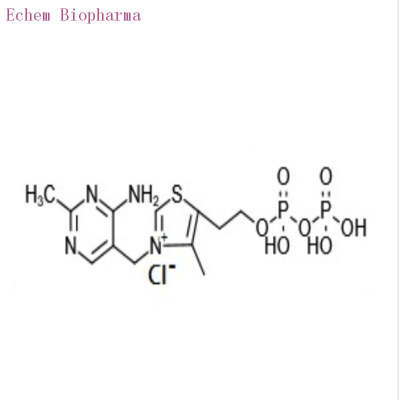-
Categories
-
Pharmaceutical Intermediates
-
Active Pharmaceutical Ingredients
-
Food Additives
- Industrial Coatings
- Agrochemicals
- Dyes and Pigments
- Surfactant
- Flavors and Fragrances
- Chemical Reagents
- Catalyst and Auxiliary
- Natural Products
- Inorganic Chemistry
-
Organic Chemistry
-
Biochemical Engineering
- Analytical Chemistry
- Cosmetic Ingredient
-
Pharmaceutical Intermediates
Promotion
ECHEMI Mall
Wholesale
Weekly Price
Exhibition
News
-
Trade Service
cloned at the Royal Veterinary College in London have mutations that cause muscular dystrophy similar to Duching's.
: ROYAL VETERINARY COLLEGE
Working with Dogs researchers have patched up a genetic malfunction that causes Duching's muscular dystrophy (DMD) by further damaging the DNA. This unusual method, which uses the genome editor CRISPR, allows the mutant gene to regenerate key muscle proteins. The feat, the first of its kind in large animals, has raised hopes that such genetic surgery may one day prevent or treat the disabling and even deadly disease. It is estimated that 300,000 boys worldwide are currently affected by DMD. The study, published online
the University of Texas (UT), was conducted by Eric Olson, a molecular biologist at the University of Texas Southwestern Medical Center.
the largest gene in the human body, the amyotrophy protein gene contains 79 different coding regions, or exons. Together, they created a protein with 3,500 amino acids. Most areas of the DNA offer a number of opportunities to trigger mutations in DMD. But only a functional copy of the gene is required, and because it is located on the X chromosome, the girl has a "standby" copy. For boys, the failure of the gene copy can cause walking problems early in life and lead to death from heart and respiratory failure in their 20s.
about 13 percent of boys with DMD had mutations in areas between 45 and 50 of the exons. They hit the exon 51 and de-functionalize it, destroying the molecular machine that reads the gene's instructions, causing the antimyostrophy protein to stop producing. In 2009, a team led by Richard Piercy of the Royal Veterinary College in London identified a Spanish hound showing signs of DMD. The spontaneous mutations it possesses also cause the exon 51 to lose its function. The researchers then trained a close relative of the Spanish hound using the Migru hound, which has been used in biomedical research, to create a clone with DMD symptoms.
working with the Piercy team, Olson and colleagues designed CRISPR molecular scissors that were cut where the exon 51 began in the body of the sick Migro hound. The team hopes that when cells try to repair the shear, they inadvertently introduce an error into the exon 51, causing the protein-producing machine to skip the exon completely and produce a shortened but still functioning antimyostrophy protein.
challenge is to change billions of muscle cells in living animals. To do this, the team recruited a "helper": a harmless adenopathy virus that prioritizes infection of skeletal muscle and heart tissue. Two 1-month-old dogs received intramyal injections of the virus. The virus has been modified to carry CRISPR molecular components. After 6 weeks, these muscles produce antimyostrophy protein again. The researchers injected the virus into the muscles of two other dogs, who were also 1 month old, to determine whether the virus carrying CRISPR could add the genome editor to the muscles of the body. Within eight weeks, antimyostrophy protein levels climbed to relatively high levels in several muscles -- 58% in the diaphragm and 92% in the heart. (Source: Zong Hua, China Science Daily)







